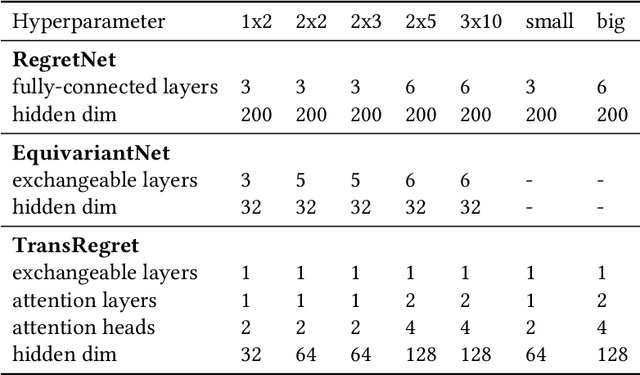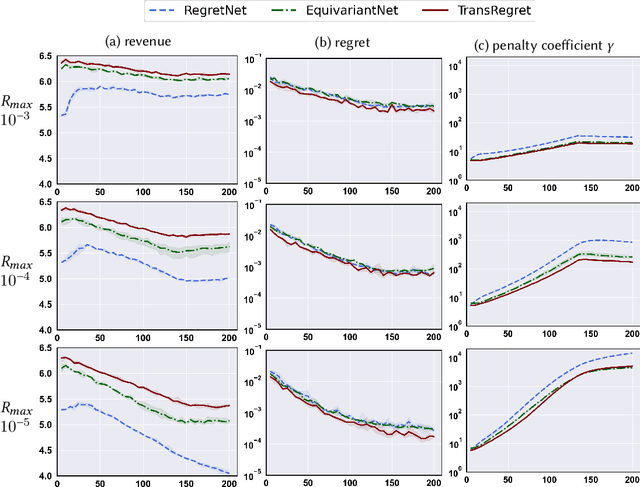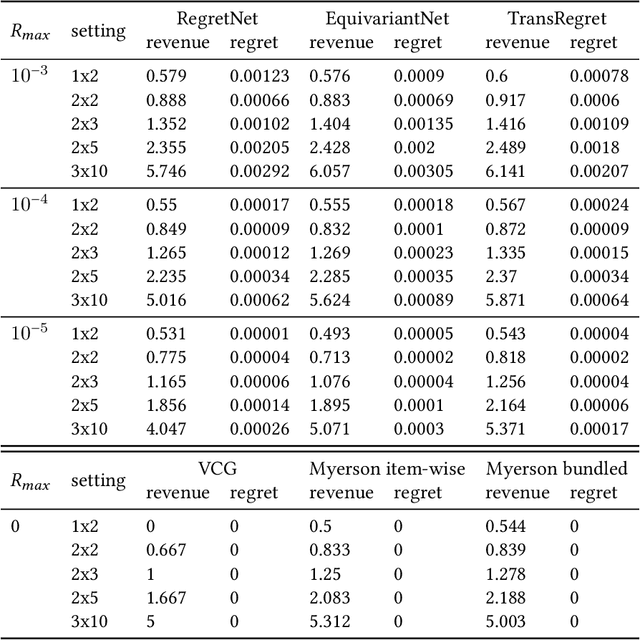Ksenia Balabaeva
Optimal-er Auctions through Attention
Feb 26, 2022



Abstract:RegretNet is a recent breakthrough in the automated design of revenue-maximizing auctions. It combines the expressivity of deep learning with the regret-based approach to relax and quantify the Incentive Compatibility constraint (that participants benefit from bidding truthfully). As a follow-up to its success, we propose two independent modifications of RegretNet, namely a new neural architecture based on the attention mechanism, denoted as TransRegret, and an alternative loss function that is interpretable and significantly less sensitive to hyperparameters. We investigate both proposed modifications in an extensive experimental study in settings with fixed and varied input sizes and additionally test out-of-setting generalization of our network. In all experiments, we find that TransRegret consistently outperforms existing architectures in revenue. Regarding our loss modification, we confirm its effectiveness at controlling the revenue-regret trade-off by varying a single interpretable hyperparameter.
Automated Spelling Correction for Clinical Text Mining in Russian
Apr 10, 2020



Abstract:The main goal of this paper is to develop a spell checker module for clinical text in Russian. The described approach combines string distance measure algorithms with technics of machine learning embedding methods. Our overall precision is 0.86, lexical precision - 0.975 and error precision is 0.74. We develop spell checker as a part of medical text mining tool regarding the problems of misspelling, negation, experiencer and temporality detection.
Negation Detection for Clinical Text Mining in Russian
Apr 10, 2020



Abstract:Developing predictive modeling in medicine requires additional features from unstructured clinical texts. In Russia, there are no instruments for natural language processing to cope with problems of medical records. This paper is devoted to a module of negation detection. The corpus-free machine learning method is based on gradient boosting classifier is used to detect whether a disease is denied, not mentioned or presented in the text. The detector classifies negations for five diseases and shows average F-score from 0.81 to 0.93. The benefits of negation detection have been demonstrated by predicting the presence of surgery for patients with the acute coronary syndrome.
 Add to Chrome
Add to Chrome Add to Firefox
Add to Firefox Add to Edge
Add to Edge